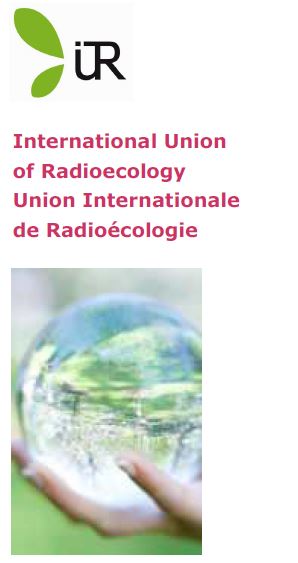The International Union of Radioecology is an independant, non-political and non-profit scientific organisation for professional radioecologists. With an active membership of over 600 from 58 countries, IUR represents an authoritative source of information on all aspects of radioecology.
- IUR activities are organised through a number of Task Groups, meetings, workshops, conferences and training courses.
- IUR also has a website for its membersand for wider scientific community.
- IUR promotes the dissemination of recent scientific achievements facilitated by an affiliation with the Journal of Environmental Radioactivity.
THE UNION'S APPROACH
The first overarching role of the Union therefore is to perpetuate a "think tank" capacity on radioecology issues through the maintenance of a network of scientists and professionals from all over the world to foster communication between researchers from different fields and geographical regions through brain storming in task groups, the publication and circulation of technical papers, organization of conferences, training courses, job alerts.
Thereby, the aims of IUR are both
- to represent the particular needs and aspirations of the international radioecology community
- and to support this radioecology community
>> A detailed description of the IUR's approach to "a renewed strategy in a changing world" is given in the article:
Integrating environment protection, a new challenge: strategy of the International Union of Radioecology
by F. Brechignac, R. Alexakhin, J. M. Godoy, D. H. Oughton, S. Sheppard, P. Strand, published in Radioprotection (2008), Vol. 43, n°3 pp.339-356.
>> The IUR's vision statement for Radioecology, which provides the current research directions and describes the trends for the future, what we want the Union to achieve in the future:
THE OBJECTIVES OF THE UNION
The main objectives of IUR are focused on science.
They are summarized as follows:
- To Promotion of research in the field of Radioecology
- Setting up interdisciplinary networks for professional contacts among radioecolo-gists and other scientists active in the field of health physics, ecology, physics, chemistry, biology, ecotoxicology and environmental management and engineering.
- To ensure, stimulate and maintain high level radioecological expertise capacity throughout the world to secure the safe development of nuclear based technologies and the public awareness and acceptance. This leads to commitments in education and training of the next generation of scientists, professionals and regulators.
- To promote scientific innovation, identify research priorities and stimulate the co-construction of international programmes sharing resources and research infrastructures. This leads to committing specific Task Groups, partnerships for research with consensus on challenging topics, on all necessary and relevant issues, and setting up of discussion fora.
- To perpetuate and strengthen its 30 years old network of scientists and professionals for the benefit of all members and member countries. This leads to commitments in communication and information aimed at ensuring wide common understanding, standardized methods of assessment (pollutants have no frontier), dissemination of recent scientific achievements and knowledge, equal access to the most up-to-date information.
- To liaise all the above radioecological outputs with other relevant international organisations, whether focused on science, operational radioecology, or regulation for radiation protection.
- To disseminate radioecological information through meetings, reports and publications.
- To organize training courses and summer Schools.
- To assist in assessment the impact of nuclear activities on the environment.
- To provisione independent advice at all levels of society.

